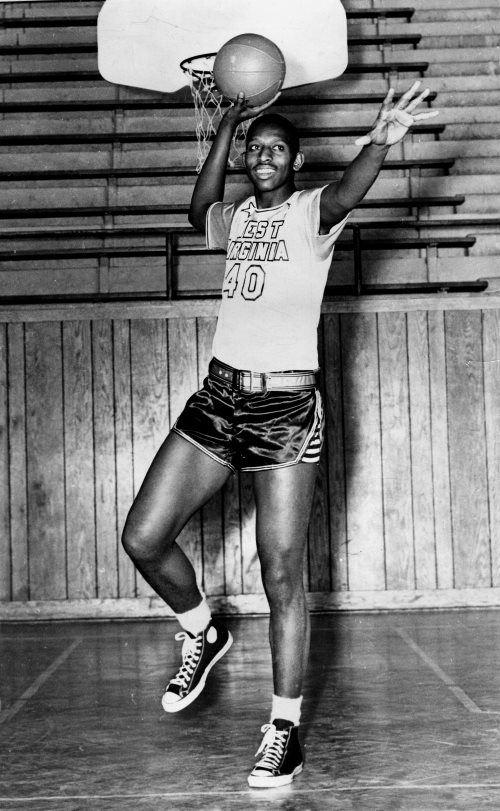When it comes to the world of professional basketball, Earl Lloyd was a trailblazer in the truest sense of the word. In 1950, with the Washington Capitols, he was the first African-American to play in an NBA game. Later, with the Syracuse Nationals, he became the first African-American player to win an NBA championship. Following his playing days, with the Detroit Pistons, he was the first African-American to be named an assistant coach and the first to be named a bench coach.
A native of Alexandria, Va., Lloyd began playing basketball at Parker-Gray High School before coming to what was then West Virginia State College in 1947. During his time playing for State, the Yellow Jackets won two Central Intercollegiate Athletic Association (CIAA) Conference and Tournament Championships in 1948 and 1949 where they finished in second place. Lloyd was named All-Conference for three years, from 1948 to 1950, and named All-American by the Pittsburgh Courier for 1949 and 1950.
After his college playing days, Lloyd was taken in the NBA draft in the ninth round by the Washington Capitols. On Oct. 31, 1950, Lloyd became the first African-American to play in an NBA game when he took the court against the Rochester Royals. Although the Royals defeated the Capitols 78-70, Lloyd scored 6 points in what would go down as an historic night.
Lloyd spent only seven games with the Capitols before leaving for a two-year stint in the U.S. Army. In 1952 he returned to the NBA to play for the Syracuse Nationals.
Nicknamed “The Big Cat,” Lloyd achieved the best performance of his career in the 1954-55 season when he scored 731 points and helped the Nationals to the Eastern Division Championship. This shored up Lloyd as the first African-American to win an NBA title. His average that year was 10.2 points and 7.7 rebounds per game.
In 1958 Lloyd was traded to the Detroit Pistons where he remained until his retirement as a player from professional basketball in 1960 at the age of 32. He ended his career with averages of 8.4 points and 6.4 rebounds.
After retirement, Lloyd remained with the Pistons as a scout, and is credited with discovering basketball talents Willis Reed, Earl Monroe, Dave Bing, Ray Scott and Wally Jones.
In 1968 Lloyd broke another color barrier when he was named the first African-American assistant coach in the league, with the Detroit Pistons. Three years later he became the second African-American to be named a head coach of a NBA team. During his short tenure, he coached future Hall of Famers Dave Bing and Bob Lanier.
Following his time in professional basketball Earl joined Chrysler and became the first African-American executive in the Dodge division. Later, he was an administrator in the field of job placement for the Detroit Board of Education for more than 10 years. Before finally retiring completely, Lloyd was an executive in the community relations department of Dave Bing, Inc., a steel and automobile-parts company owned by the former Piston whom Lloyd had coached.
Lloyd’s accomplishments have been recognized throughout the years by a variety of different groups in a variety of different ways. He was inducted into the national Naismith Basketball Hall of Fame in 2003. He has also been honored with induction into the West Virginia State University Hall of Fame, the state of Virginia Athletic Hall of Fame, the state of West Virginia Athletic Hall of Fame, the National Association of Intercollegiate Athletics Hall of Fame, the Black College Alumni Hall of Fame and the Parker-Gray High School Hall of Fame. He was named to the CIAA Silver Anniversary Team and was voted as one of the CIAA’s 50 Greatest Players. In 2001, the Congressional Black Caucus Policy and Leadership Institute bestowed the inaugural “Legends of Black History” Sports Award on Lloyd, and in 2008 the U.S. House of Representatives honored Lloyd with a Congressional Resolution. In 2007, the newly constructed basketball court at T.C. Williams High School in Lloyd’s home town of Alexandria, Va., was named in his honor.
Lloyd’s remarkable story is the subject of the documentary film “The First To Do It.”
Lloyd passed away Thursday, Feb. 26, 2015.
